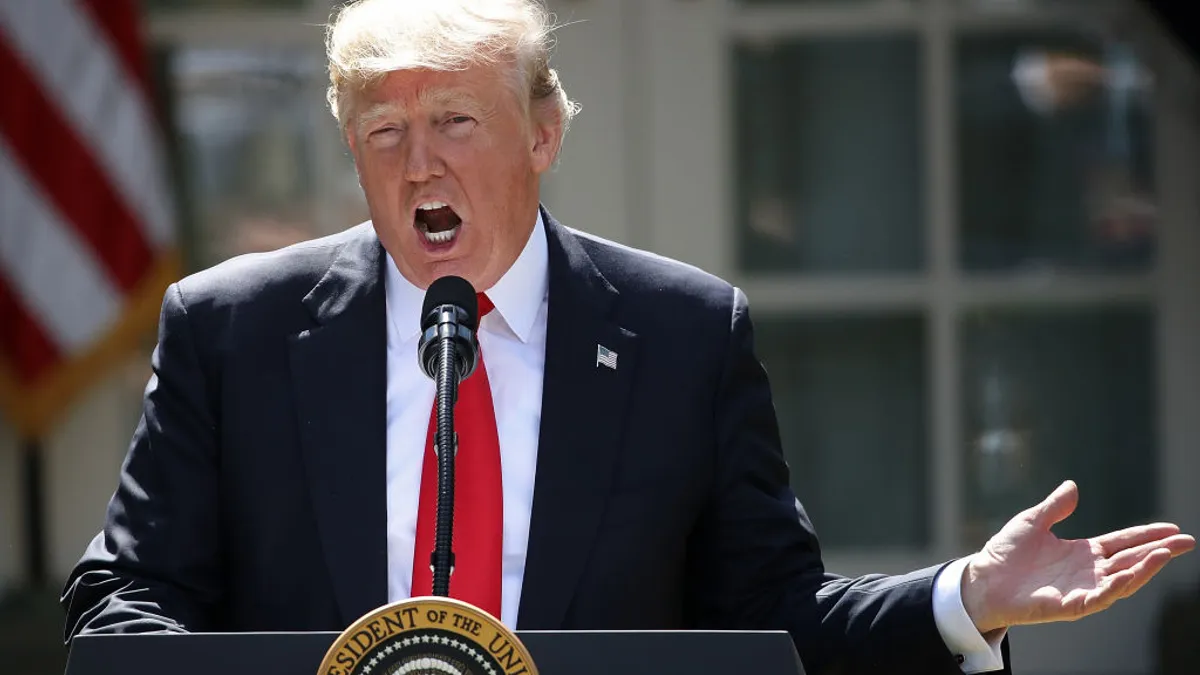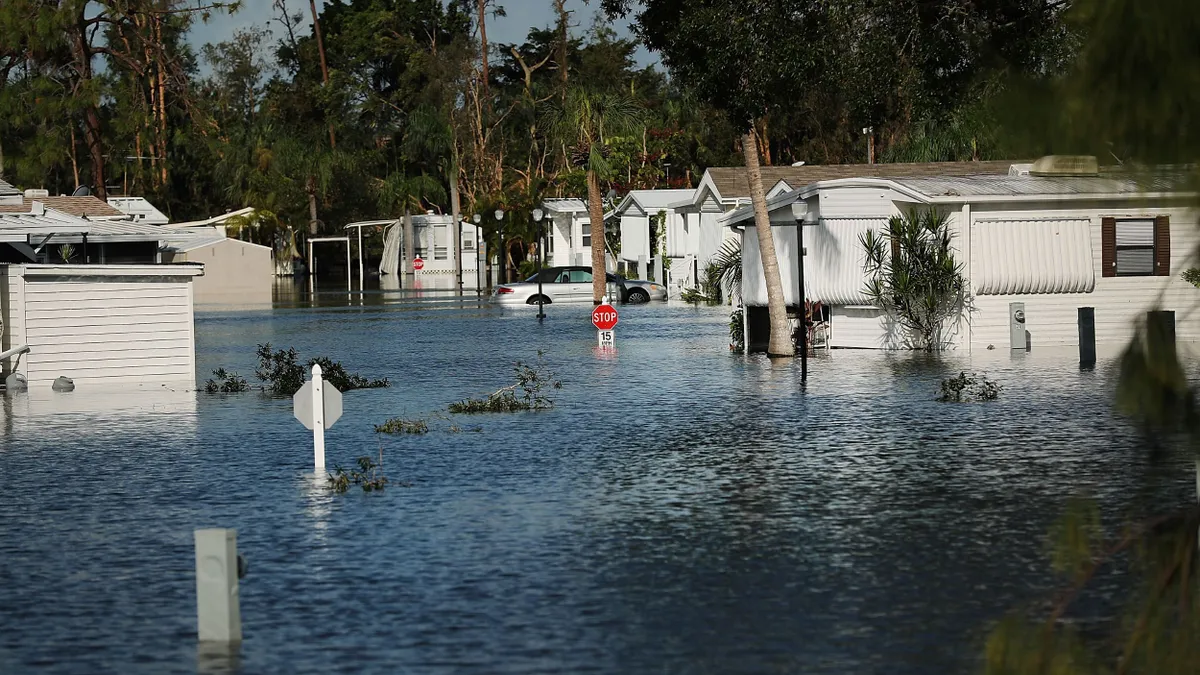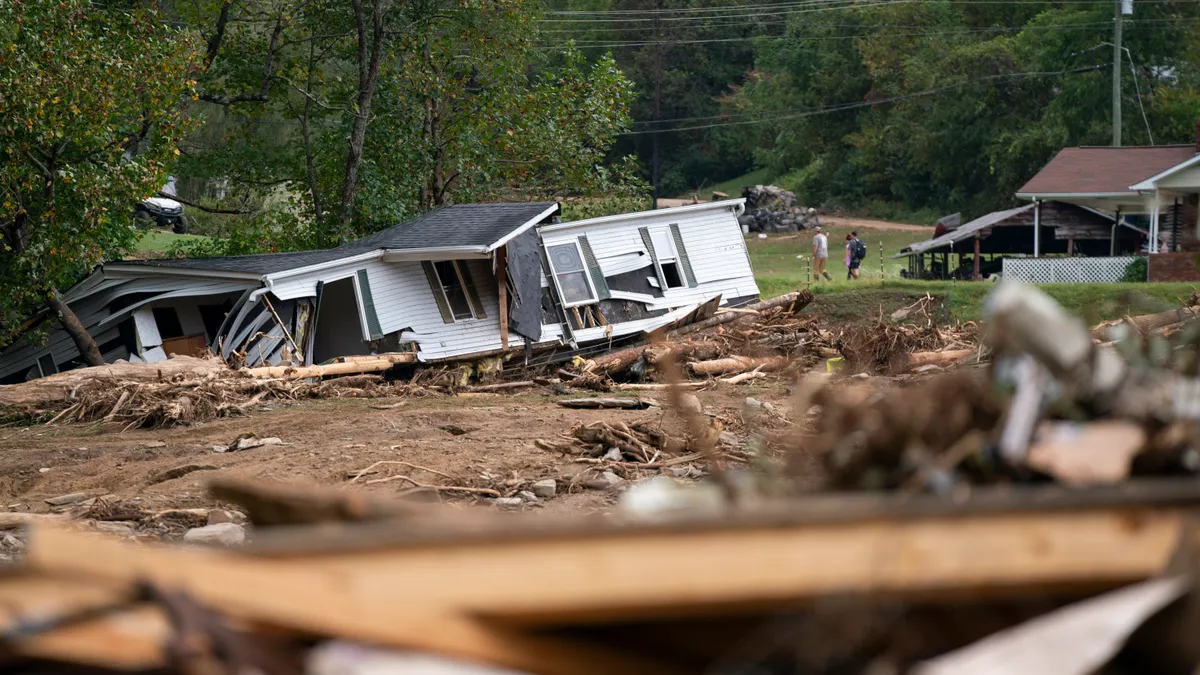Donald Trump, the next U.S. president, has promised to boost fossil fuel production and rescind all unspent funds under the Inflation Reduction Act, the nation’s largest-ever investment in clean energy and climate change. He’s also cast doubt on the scientific consensus around climate change and threatened to roll back environmental rules.
But local leaders said they won’t slow efforts to reduce planet-warming pollution and boost community resilience, even if a second Trump administration makes it more difficult for them to do so.
“[Mayors] are going to double down on our commitment, passion and vigor to continue to address these issues, especially at the local level,” said Cleveland, Ohio, Mayor Justin Bibb, who is the chair of Climate Mayors. “We've been here before, when President Trump was first elected in 2016 and pulled out of the Paris Accords,” a legally binding international treaty to reduce greenhouse gas emissions.
It will likely be more difficult for local governments to take on ambitious climate projects under a second Trump administration than it was under the Biden administration, said Amy Turner, director of the Cities Climate Law Initiative at Columbia University’s Sabin Center for Climate Change Law. But the next four years won’t be the first time that U.S. cities lack a strong federal partner on this front. In fact, the Biden administration is the first strong federal climate partner cities have ever had, Turner said. Even so, Biden’s climate track record isn’t spotless, with the U.S. breaking global records for crude oil production under his administration.
For some local leaders, the timing of Trump’s presidential win couldn’t be worse, as climate change impacts become more frequent and dangerous. “My biggest concern is that we slow down at the precise time we need to be speeding up our response and actions,” Ann Arbor, Michigan, Sustainability and Innovations Director Missy Stults said in an email.
Threats to the IRA
Defending the IRA is a top priority for many city leaders and climate advocates.
Much of the IRA’s grant funding for local governments has already been obligated, with the Biden administration intentionally awarding as many grants as possible before a potential administration change, Turner said. Even so, billions of unspent IRA dollars remain that a Trump administration could potentially redirect or make difficult for cities to access. Turner urged city leaders to finalize federal grant contracts quickly, calling them an “important legal milestone” in ensuring local governments receive the money awarded to them.
Mayor Bibb says he hopes the Trump administration can be convinced that the U.S. must continue IRA investments to maintain the nation’s long-term global economic competitiveness. “If we're really about America first, then America should lead the way in terms of the green energy revolution,” Bibb said.
Bibb added that in the coming years, mayors will need to tell “the story better to our residents” about how climate projects can lower people’s bills, which was a top voter concern in the Nov. 5 elections. Joan Fitzgerald, a Northeastern University professor of public policy and urban affairs, echoed this call to action, saying in an email that “in addition to making an environmental case for climate action, city leaders need to emphasize the economic benefits.”
The Trump administration could also seek to end or hinder elective pay, which the IRA created to allow local governments and other tax-exempt entities to take advantage of tax credits for clean energy projects. Fully stopping those incentives wouldn’t be an easy lift for Trump, however, since elective pay is in statute and would require Congress to amend or repeal the IRA, Turner said.
Trump will also likely roll back clean energy and electric vehicle incentives, which could affect state and cities’ adoption goals, Fitzgerald said. The likelihood that fewer climate dollars are available under Trump means cities will need to diversify funding sources, potentially drawing from state funds or issuing municipal green bonds, she added.
Climate science and justice goals under Trump
Local access to reliable climate science could also suffer under a second Trump administration.
Under Trump’s first administration, some federal agencies scrubbed climate change-related information from their websites. Project 2025, a blueprint for a second Trump administration created by conservative think tank The Heritage Foundation and former Trump staffers, suggests breaking up and downsizing the National Oceanic and Atmospheric Administration, which has pushed in recent years to make climate data more accessible to communities.
Many nonprofits and research groups will still do a “ton of good work,” said Rebecca Marx, a research associate in the climate and communities practice area of the Urban Institute’s Metropolitan Housing and Communities Policy Center. However, resource-strapped local governments could struggle to sift through the information and decide what’s reliable if federal agencies aren’t there to help.
“I don't think there will be a dearth of information out there,” Marx said. “It'll just be a lot harder to access and make use of.”
On the first day of his administration, Trump would also likely pull back the Biden administration’s Justice40 commitment to give 40% of certain funds to disadvantaged communities, Turner said.
The Trump administration’s impact on local climate action won’t be fully known until after he’s sworn in, but Cleveland’s Bibb says that as a Democratic mayor in a red state, he wants to make sure he gives the new president an opportunity to collaborate on climate action.
“I think every American agrees that we need to have a safer country, a more just country and a country where we're providing good-quality jobs to address inflation and to address the economic prospects of middle-class and working-class Americans,” Bibb said. “Having a vibrant country that's fueled by the green energy revolution is a part of that.”




















